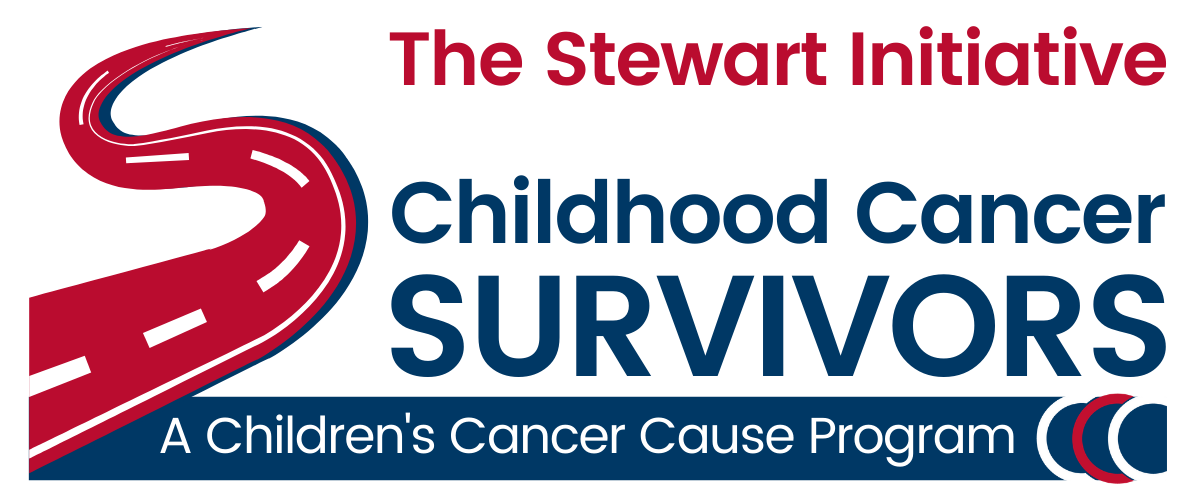
Public Policy & Survivorship
In this section, we provide advocacy resources and updates on policy issues that impact childhood cancer survivors.
Survivorship Policy Updates
Comprehensive Cancer Survivorship Act is a Landmark Bill for Childhood Cancer Survivors (July 2023)
The Comprehensive Cancer Survivorship Act was reintroduced for the 118th Congress as H.R. 4363 in the House and S. 2213 in the Senate. This bill represents a landmark moment toward improved survivorship care to better meet the unique needs of childhood cancer survivors.
This bill aims to address gaps in survivorship care and develop desperately needed standards to improve the overall patient-centered quality of care and navigation needs of the nation’s 18 million cancer survivors of all ages. We’re particularly encouraged that the bill has two childhood cancer provisions that Children’s Cancer Cause helped develop and provided technical feedback on. Learn more.
Introduction of The Comprehensive Cancer Survivorship Act (December 2022)
The Comprehensive Cancer Survivorship Act was introduced in Congress on December 14, 2022. Children's Cancer Cause worked closely with Hill staff for the last several years on drafting the bill and helping to ensure pediatric cancer survivor provisions were included in its bipartisan introduction.
Several of the provisions in this comprehensive survivorship legislation directly address issues faced by the nation's 500,000 childhood cancer survivors along the continuum of survivorship care. Learn more.
Roundtable Puts Focus on Improving Cancer Survivorship (July 2021)
On July 14, 2021, several organizations, including Children's Cancer Cause, participated in a virtual roundtable on cancer survivorship convened by Congresswoman Debbie Wasserman Schultz (D FL-23). Representative Wasserman Schultz, a breast cancer survivor, is a leading Congressional champion for the cancer advocacy community, having authored multiple cancer statutes. Currently, Wasserman Schultz is developing a comprehensive draft bill with many legislative specifications aimed at improving survivorship care across the board, for children, adolescents, and adult cancer survivors.
AHRQ Report on Disparities and Barriers to Pediatric Cancer Survivorship Care (March 2021)
Since the passage of the STAR Act in 2018, Children’s Cancer Cause has advocated for follow-through on a provision that called for an assessment of childhood cancer survivorship programs, to give the National Cancer Institute (NCI) the means of establishing best practices and definitive survivorship care standards. This process began to take shape last summer through the office of the Agency for Healthcare Research and Quality (AHRQ). We are pleased to share that the AHRQ published the final report (called a Technical Brief) this month: Disparities and Barriers to Pediatric Cancer Survivorship Care. This is the first of three AHRQ survivorship reports called for under the STAR Act. Learn more.
GAO Report on Access to Follow-Up Care for Survivors (August 2020)
As policy authors and key champions of survivorship provisions in the Childhood Cancer STAR Act, Children’s Cancer Cause is keenly interested in following up with Congress and federal agencies to ensure full implementation of this landmark legislation. The most recent survivorship action is the release of the Government Accountability Office (GAO) report on barriers to care for childhood cancer survivors - Survivors of Childhood Cancer: Factors Affecting Access to Follow-up Care (PDF).
The original STAR Act language authorized the GAO report but it was ultimately stripped from the bill. With help from Children’s Cancer Cause, the bill’s authors worked to authorize the report through the appropriations process. With this report, there is now growing government acknowledgement about the unique needs and challenges facing childhood cancer survivors, a recognition that our community will need to leverage to make sure there are improvements in access and support.
The report identifies three main barriers to survivorship care: affordability, knowledge, and proximity. Learn more.
The Childhood Cancer STAR Reauthorization Act Signed into Law! (January 2023)
The original Childhood Cancer Survivorship, Treatment, Access and Research (STAR) Act was signed into law in 2018 and authorized five years of funding at $30 million annually from 2019-2023. The STAR Act was celebrated as the most comprehensive childhood cancer legislation ever taken up by Congress.
In 2022, we did it again, securing passage of the Childhood Cancer STAR Reauthorization Act in both chambers of Congress just before the end of the 117th Congress. It was signed into law in early January 2023. Learn more.
President Biden Reignites Cancer Moonshot (February 2022)
The White House announced today a renewed commitment to the Cancer Moonshot, an initiative first launched in 2016 when Joe Biden was Vice-President. The mission of the Cancer Moonshot is to accelerate the rate of progress against cancer. In today’s announcement, President Biden is setting a goal of cutting the death rate from cancer in half over the next 25 years.
The White House statement - which can be read in its entirety here - includes a specific goal “to speed progress against the most deadly and rare cancers, including childhood cancers.” Learn more.
AHRQ Report on Transitioning from Pediatric to Adult Healthcare (October 2021)
Children’s Cancer Cause issued comments and recommendations to the Agency for Healthcare Research and Quality (AHRQ) in response to the draft report Transitions of Care From Pediatric to Adult Services For Children With Special Healthcare Needs. AHRQ is the lead federal agency charged with improving the safety and quality of America's health care system. This report on Transitions of Care is the third and final AHRQ survivorship report called for under the Childhood Cancer STAR Act. We’ve been engaging closely with AHRQ throughout this process, starting with the first report back in March, which focused on disparities and barriers to care.
Because children with cancer have unique and life-long health challenges, the effective transition to adult care should be specific to the complex needs of survivors. Childhood cancer survivors may experience multiple late effects, which can be serious or life-threatening, including secondary cancers. Learn more.
Children's Cancer Cause Recommends CAST Model as Strategy to Overcome Survivorship Care Barriers (June 2021)
We issued comments and recommendations this month to the Agency for Healthcare Research and Quality (AHRQ), in response to the draft report Models of Care that Include Primary Care for Adult Survivors of Childhood Cancer: A Realist Review. AHRQ is the lead Federal agency charged with improving the safety and quality of America's health care system. AHRQ develops knowledge, tools, and data needed to improve the health care system and help Americans, health care professionals, and policymakers make informed health decisions.
The report supports a major goal of Children's Cancer Cause - the authorization of a Center for Medicare and Medicaid (CMMI) demonstration program to develop standards of care based on COG guidelines for survivors of childhood cancer with a focus on scalable models across the United States. We submitted with our comments a Children's Cancer Cause proposal that we recommend as a strategy to overcome barriers to survivorship care: the Child and Adolescent Cancer Survivorship Transition (CAST) Model.
AHRQ Assessment of Survivorship Programs and Standards (July 2020)
One of the challenges facing survivors is the lack of standards in follow-up care. While the Children’s Oncology Group regularly publishes a set of guidelines, they are sometimes inconsistently followed by survivorship clinics. Healthcare providers recognize barriers to care but struggle to avoid or mitigate these disparities. Children’s Cancer Cause had successfully advocated for a provision in the STAR Act to have this addressed.
However, the final language suggested that the Secretary of the Department of Health and Human Services (HHS) “may” establish survivorship standards – and it was unclear if that was going to happen. Consequently, Children’s Cancer Cause recruited several Members of Congress to successfully urge HHS to begin this process.
This effort resulted in the HHS Secretary directing NCI to begin the process. Now funding has been provided to the Agency for Health Research & Quality (AHRQ) to conduct an assessment of childhood cancer survivorship programs to give NCI the means of finally establishing definitive standards. This assessment will explore the disparities and barriers to survivorship care and the proposed strategies for addressing those barriers. Learn more.
Your Voice
As a childhood cancer survivor, your voice is critical as policymakers make decisions on childhood cancer research, access, care and survivorship. Your experience, story, interests and actions increase government funding and resources, strengthen programs and enhance awareness.
Most people have never set foot on Capitol Hill or in their state legislature. But advocacy is much more than reading legislation and being involved in politics. It starts with a vision for a better future - for every survivor and for the kids who are being diagnosed and treated today. Then it becomes personal and easier to make the journey.
